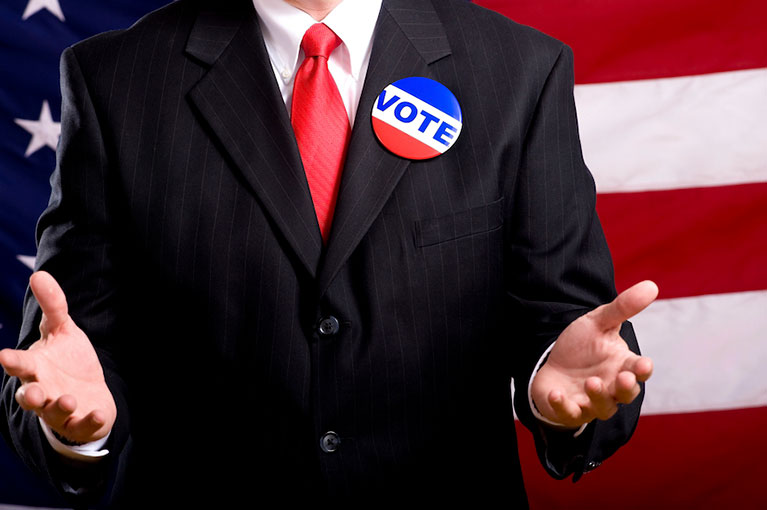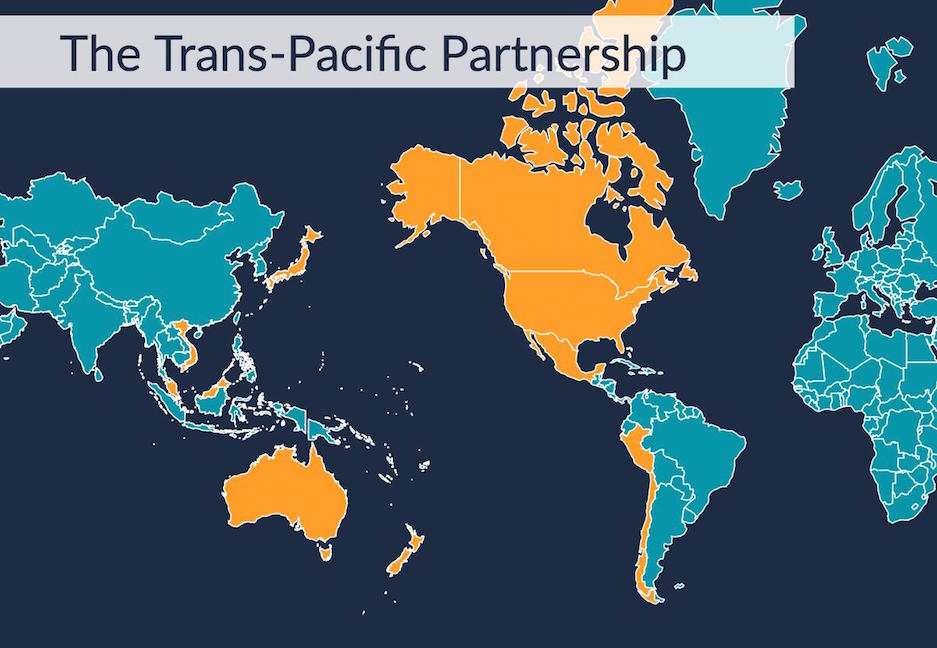Will Trump Dump Trade?
The Trump Turning Point
Yes, Mr. Trump ran on a platform that rejects the notion that trade agreements have worked to America’s favor. He promised some major reversals of trade policies. But the Trump campaign did not seed the idea or flip the switch in voters’ minds. His positioning reflects the culmination of a troubling, slow-moving — and predictable — trend.
Dispirited About Trade
There are three reasons we should have seen this moment coming. First, the cause of free trade suffers when untethered to a compelling political and economic vision. We are far from the years of bolstering ruined post-World War economies or creating a bulwark to communism during the Cold War. Americans are concerned with national security but they don’t see how the bonds of economic relationships support that objective.
Second, the way we speak about trade fails to generate enthusiasm to defend of a way of life most of us enjoy. The battleground is over values. Trade skeptics invoke themes of “fairness” and “justice” while trade advocates counter with incomprehensible and impersonal economic data. Not only is this an ineffective tactic, it ignores the rebellion against elitism on the left and right. Free trade proponents need to understand the mood of the country and connect on relatable terms that animate support.
Third, free trade policies alone will not reassure or restore a personal sense of economic security. Trade is not largely to blame for personal economic setbacks, but it makes for an easy target. Trade advocates must embed the goals of free trade in a broader agenda focused on economic competitiveness, workforce development, and other policies that both address the sources of middle-class economic anxiety and bolsters their hopes for future success.*
Transpacific Partnership (TPP): Will He Stay or Will He go?
This isn’t the first American presidential election in which candidates assumed the populist mantra that trade kills American jobs. Ross Perot warned of a “giant sucking sound” as Mexico vacuumed up American jobs under the North American Free Trade Agreement (NAFTA). His memorable words sparked a lingering perception about economic relations with Mexico that two decades of experience didn’t bear out.
In the past, that kind of rhetoric hurt trade’s image but didn’t significantly alter the course of trade policy post-election. Trade votes and new initiatives may have been delayed, but the traditional equilibrium eventually restored. This time may be different. Trump has promised to withdraw from the TPP and from NAFTA—or to renegotiate it.
In a separate Feature, we offer ideas for how to deepen North American integration, leveraging the regional production platforms that have made North America the most competitive region in the world. Given its track record, our deeply intertwined commercial relationships, and the multi-faceted nature of cooperation with our neighbors from public health to natural disasters to cross-border energy assets, it is highly unlikely President-elect Trump do anything but reimagine the North American economic framework. He will not abandon it.
We aren’t as sanguine about TPP, an agreement that consumed years of intellectual and political engagement with strategic partners in Asia and Latin America, but which is opposed by populist movements on the left and the right in the United States. We’ve seen the opposition on the left in previous trade policy fights, but the wave of sentiment that brought Donald Trump into office should not be underestimated or ignored.
Trade Policy for the People
As a presidential candidate, Trump called the agreements unfair to Americans – President-elect Trump may have to right the perceived wrong in some way. Trump also tapped into resentment of elite snobbery. In an op-ed for the Wall Street Journal before he won the Republican nomination, Trump wrote:
Let me ask America a question: How has the “system” been working out for you and your family? …The only antidote to decades of ruinous rule by a small handful of elites is a bold infusion of popular will…The elites are wrong on taxes, on the size of government, on trade, on immigration, on foreign policy.”
When polled, more than 70 percent of Americans says they don’t know much about TPP. Unfortunately, that lack of connectedness to the agreement may become its downfall. It is symptomatic of the feeling that TPP was negotiated by elites for elites, whether you perceive those elites to be corporate insiders or an administration pursuing a social and regulatory agenda antithetical to small business and the average worker.
If President-elect Trump rejects American participation in the TPP, it will be the foreseeable consequence of a mistake trade advocates have made. In a 2007 analysis, Anne Kim offered a prescient admonition: “Open-trade advocates must bear some of the blame for neopopulism’s current resurgence…we have become arrogant in our conviction that open trade brings unchallengeable and unalloyed benefits. Because of that arrogance, we have failed both to acknowledge some hard realities about the current political and economic climate and to answer the criticisms of trade skeptics convincingly.”
Hearts and Minds
Despite his successes on the campaign trail, the election of Donald Trump came as a surprise to most people. The recriminations have been swift among the establishments on the left and right, the media, the political consultants, and the pollsters who got it wrong by underestimating and failing to grasp the motivations of Trump voters – and Bernie Sanders voters.
Both groups demonstrated skepticism about U.S. trade policies. Although it’s unlikely voters pulled the lever for their candidate because they were for or against TPP, the 2016 presidential election is an inflection point. Trade advocates need to redouble their honest and earnest effort recapture the hearts of hardworking Americans.
Global economic leadership has been the dominant feature of American values since our creation despite bouts of protectionism and isolationist rhetoric. So if American voters want a sense of stability and adherence to core values, continuing to promote an open global trading system will be right up that alley. We shouldn’t abandon important and foundational trade agreements, but we should work to figure out what the populace really wants from trade deals and how to deliver it.
* Read more in Anne Kim’s analysis of why middle-class support for free trade has been in her 2007 report, Why Lou Dobbs is Winning.
Andrea Durkin is the Editor-in-Chief of TradeVistas and Founder of Sparkplug, LLC. Ms. Durkin previously served as a U.S. Government trade negotiator and has proudly taught international trade policy and negotiations for the last fifteen years as an Adjunct Professor at Georgetown University’s Master of Science in Foreign Service program.





